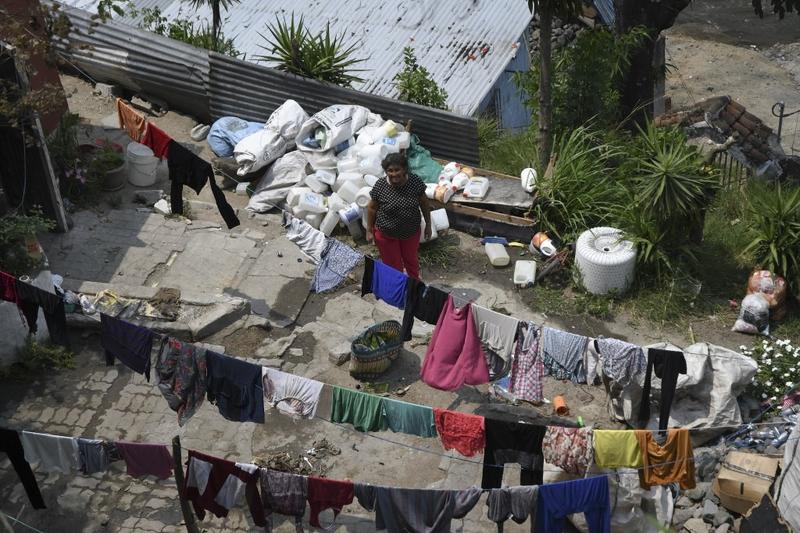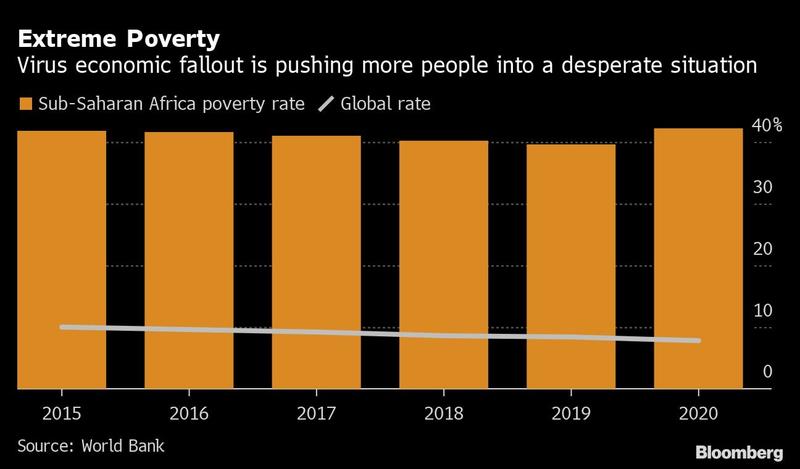 A woman stands next to clothes hung to dry at her house, where she placed a white flag as a signal that she needs food, at El Solano village, in Villa Nueva, 15 km south Guatemala City on May 6, 2020, amid the new coronavirus pandemic. (PHOTO / AFP)
A woman stands next to clothes hung to dry at her house, where she placed a white flag as a signal that she needs food, at El Solano village, in Villa Nueva, 15 km south Guatemala City on May 6, 2020, amid the new coronavirus pandemic. (PHOTO / AFP)
The coronavirus pandemic has had a devastating impact on the world’s poorest countries, pushing millions into extreme poverty, according to a United Nations report.
More than 32 million additional people in the poorest countries in the world now live on less than US$1.90 a day -- a direct result of the outbreak, the UN Conference on Trade and Development said Thursday.
While Group of 20 governments suspended debt payments from the poorest countries earlier this year, the UN said they need to go “well beyond” that and look at cancellation
The economic impact in the Least Developed Countries has been far more devastating than the health crisis, it said, with growth prospects cut from 5 percent to -0.4 percent this year.
That would be the worst economic performance of the 47 LDCs since the third-world debt crisis of the 1980s, the UN said. The abrupt halt in world trade and tourism, and the impact of lockdowns on international migration and remittances, dealt a “ruinous” blow. The combined merchandise trade deficit of the LDCs is forecast to exceed 2019’s record US$91 billion.
READ MORE: 2020 likely world's second hottest year, UN says
Domestically, falling income levels, widespread unemployment and widening fiscal deficits have been exacerbated by the pandemic. According to UNCTAD, this makes the poverty and social outcomes of the 2030 Sustainable Development Goals a “distant prospect.”
The report comes just a week after the UK cut its foreign aid budget, a move that provoked a huge domestic backlash. And while Group of 20 governments suspended debt payments from the poorest countries earlier this year, the UN said they need to go “well beyond” that and look at cancellation.

ALSO READ: UN: Virus could result in more HIV & AIDS-related deaths
According to the report, governments in LDCs have two main priorities: a short-term battle to cushion the impact of the recession, and a longer-term one to build resilience against future crises.
“The pandemic has brutally reminded us of the urgent need to develop productive capacities in LDCs to enable them to achieve structural transformation, reduce exposure to external shocks and build resilience,” UNCTAD Secretary-General Mukhisa Kituyi said.


